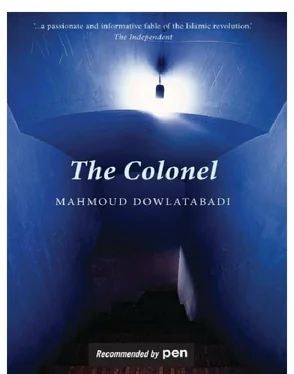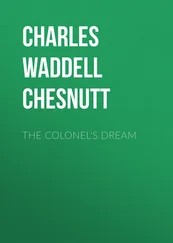What was it that Amir had said on that rainy day when he had been sitting on the old velvet sofa next to the stove with his legs casually crossed, smoking his pipe and with that Bolshevik cap on his head that he refused to take off, even indoors? How he had banged on, so pretentiously, so much so that Qorbani had believed that his brother-in-law fancied himself as some sort of leader. What had happened in that room? the colonel had seen how Qorbani had slipped out and, without telling the family what he was up to, rustled up a crowd and brought them back to the colonel’s house to do honour to his son, the returning hero who, ‘After enduring years of imprisonment and torture, here he is once more, with his head held high. Having depended on the unstoppable momentum of the people to secure his release from gaol, he is now going to mobilise that same force to overthrow this government of tyrants and oppressors and make this part of the country tremble with fear!’
What a speech! No doubt Qorbani had learned this humbug and windbaggery from newspapers, which at that time had made a sudden U-turn from their former line. I hope I never read words like that in a newspaper again, let alone in a novel, for those kind of hollow, weasel words aren’t even worthy of a piece of fiction!
And in no time a crowd of people, ‘simple gullible people’, as if they had suddenly been woken from a deep sleep, some with umbrellas and some without, began to beat a path to the colonel’s house in the pouring rain. the colonel, stunned and silent, looked on as tray after tray of fruit and pastries were delivered, ordered by Qorbani and his cronies. After a while, so many people had piled in on top of each other in the courtyard, and even in the alley outside, that there was no more room for them. He noticed that Amir had been dragged out of the living room onto the verandah to give a speech of thanks. But the crowd wanted more. The place was not large enough for such a huge gathering, nor was there a loudspeaker, but it did not matter. That was the sort of thing that Qorbani was used to dealing with, and before Amir had had time to think, he was being swept along by the crowd to the town square. Amir, whom Qorbani claimed had ‘risked his life, all his worldly goods and his reputation to further the cause of the revolution’ — more weasel words — was hoisted up onto a dais, fully equipped with a lectern and microphone. Helpers were even hauled in to hold umbrellas over his son in the rain, which was still drumming down mercilessly through the barrage of slogans and clichés that bellowed out in broken fragments from the loudspeakers: ‘Oppression… inflation… oil… fatherland… workers… proletariat… dictatorship… ism… more isms… and freedom, oh yes, we mustn’t forget freedom.’ And the people suddenly found they had a talent for listening, for harmony and conformity. Raised fists and slogans, a scuffle or two at the edge of the square, a couple of random shots, shouts of ‘make way,’ and then Qorbani and his boys forced a passage through the crowd for Amir to a big car that was waiting there with its doors open. It had been borrowed from a showroom belonging to one of Qorbani’s new best friends.
Back in the house, the colonel opened his cigarette case, lit one and stared silently at his son… Amir hoped for at least a brief look of approval from his father, albeit mixed with the customary measure of mistrust. He wanted to know that he had impressed the colonel and had finally persuaded him to believe in his son. Perhaps it was this burning, yet unspoken, urge that prompted him to ask: “What did you think, colonel?” But the colonel did not give him the answer he wanted. He just closed his cigarette case and tried to suppress the faint smile that played across his lips, a smile that made Amir blurt out, “It’s the revolution — we’ve got a revolution!”
It was the revolution, yes it was. And now I’m not sorry that I didn’t say anything about Parvaneh’s execution to her sister. If I’d told her, I’d then have had to ask her to come and wash the body and lay her out. It was just as well I didn’t have to tell her and ask her to do such a thing. I’m not just not sorry, I’m quite glad about it now. I’m bloody sure that if I’d said anything, Qorbani would not have let her go. It would have been a bloody disaster… So now…
So now he had to find a quick way of putting Farzaneh’s mind at rest.
“With all this rain coming down, you could get flooded out if you didn’t have a pick and shovel to hand,” he said to her, as casually as he could, while laying the pick and shovel together to hoist them over his shoulder. Without waiting for an answer he turned round and set off.
But he had only gone a few steps when a terrible, keening wail of sorrow and grief broke from his daughter and made him shake at the knees. He knew that, if he did not keep a tight grip on it, the cat would be out of the bag. He stopped and waited in the rain. Farzaneh did not say anything in particular, didn’t ask any questions. She did not even beg him to stay. In a voice that shook from the searing dryness of her throat she uttered just one word: “Papa!” Her voice froze his whole body and, for a moment, he stood nailed to the spot. But then, like someone fighting desperately for his life, he tried to pull himself together. Knowing he was invisible in the darkness of the false dawn, and relying on his old age and deafness as an excuse, he pretended not to hear her. The incessant hiss of the falling rain helped him in his ruse. He turned into a dark alley and disappeared out of his daughter’s sight, back into the darkness and the rain.
On the way back to his house, so as not to forget, he kept repeating one word over and over again: ‘shroud.’ He hummed it out loud all the way: ‘shroud, shroud, shroud, shroud.’ As he turned the key in the lock he had to break the rhythm, but after opening the door and stepping into the courtyard, he picked it up again, but this time whimpering the word, like a dog shivering in the cold, wailing the word out, with long pathetic pauses: shroud… shrou…oud… shrou…oud. He carried on whining softly as he switched on the light and opened the chest and rummaged through blankets and his old abandoned uniforms until he found a length of canvas at the bottom. His soft whimpering was like a camel pack, on which he was loading all the burdens of his misery, sending them off to their fate. His only worry was that he might get so carried away that he would forget to collect the pick and shovel, which he had left propped up by the gate. He told himself never to let himself become so absent-minded in such a situation.
I’ll never allow myself to get absent-minded! I have made up my mind to keep a cool head through this awful business. I’ll wrap up the shroud, just like the country people wrap their lunch in a cloth, and sling it over my shoulders, with two corners tied round my chest. I’ll stick my hat on my head and I’ll put the pick and shovel on my shoulder, just like the Khorasani peasants I’ve seen in Birjand 15and I’ll roll up my trouser bottoms, just in case I trip over them. My overcoat, I’ll have to do something about that… but before all that I’ve got to switch off the lights and lock the door. I can’t help it, this door locking has become an old habit and I can’t do anything about it, but… oh, nothing…
It was not clear why he could not bring himself to look the photograph of The Colonel in the eye, or even in the boots. He just felt a sense of shame, which prevented him from raising his head to look at him. He thought that the smaller and more abject he became, the greater became the distance between himself and The Colonel. He felt he had lost the capacity for friendship with him, that they no longer had anything in common. If the day ever came when he could no longer look The Colonel straight in his bright black eyes when he spoke to him, he would die. He knew that with every step that he took away from The Colonel, a man who throughout his life had embodied all his ideals, he was moving one step closer to his own death.
Читать дальше












